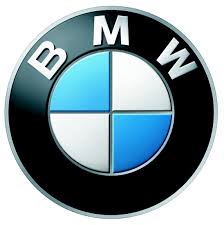3 Series E30 325i (M20) SAL

VK-20/Kuss
Baugruppe/Group: 13
13 01 98 (298)
All countries
except USA and
Canada
04/1998
Operation with unleaded fuel without "hardened" valve seats
M10, M20, M30, S14 , M88 without catalyst, up to production 08/1984
Situation:
As a result of a greater environmental awareness around the globe, more and more oil
companies are no longer adding lead or lead tetraethyl to their fuels. These additives are
used to reduce the knock properties of the fuel, especially in premium grade petrol.
In some European countries, leaded fuel has not been available at all since mid-1997.
"Non-catalyst" BMW spark ignition engines manufactured prior to the general introduction
of "hardened" valve seat material (since 09/1984) require such lead additives. This will
ensure that the valve seat rings are properly sealed and are stable.
Effect:
In order to meet these new market conditions, the actions detailed below under "Procedure"
should be applied to affected engines.
Affected
vehicles:
All vehicles with M10, M20, M30, M88 and S14 engines without catalytic converter or basic
catalytic converter fittings.
Manufacturing period: start of series up to and including August 1984
Procedure:
1.
The engines listed above can be run on unleaded fuel without problems occurring,
provided that they have covered a distance of at least
60,000 km (approx. 40,000 miles).
In such cases, so much lead and lead tetraethyl is diffused into the material of the
valve seat rings through the past frequent refuelling with leaded fuel that the required
protective effect will be present for the remaining service life (memory effect).
2.
If the service life is less than 60,000 km (approx. 40,000 miles) and the driving style is
sporty (high engine speeds, etc.), it is advisable to add an appropriate "valve
protection additive" to the fuel when refuelling with unleaded fuel.
These additives are available from most filling stations or from renowned additive
manufacturers. The additive manufacturer's directions and notes on possible risks
should be carefully observed.
3.
If a new cylinder head was fitted to an engine of a type listed above within the scope of
a repair, and this cylinder head had been sourced from the BMW part sales
department after September 1984, unleaded fuel can then be used without restriction.
This is because "hardened" valve seat rings have been installed on all BMW engines
since this date. The same applies to original BMW reconditioned components.
4.
If the valve seat rings in the cylinder head of vehicles from the affected manufacturing
period are or were merely ground using abrasive valve paste, the lead oxide coating
deposited by the "memory effect" will provide the necessary protection.
If the valve seat is reworked by milling or lathing, leading to a greater degree of
material loss on the surface of the valve seat, proceed as described in point 1 or 2
above, depending on the mileage covered.
5.
BMW does not recommend exchanging only the valve seat rings on engines from the
affected manufacturing period for the "hardened" version, as the required assembly
tools are in the main not available and because there is no real cost saving compared
to fitting an original BMW cylinder head.
6.
Regardless of the use of fuel additives - whether with or without lead - the octane
number specified by BMW for the engine in question must still be observed.
SI Operation with unleaded fuel without "hardened" valve seats M10 M20 M30 S14 , M8
BMW AG - TIS
26.01.2013 10:40
Issue status (12/2007) Valid only until next DVD is issued
Copyright
Page - 1 -
